The World-Renowned Pianists and Their Monumental Compositions
Classical music is a Western-origin musical genre that emerged alongside the Renaissance movements, which had a profound impact on European cultural development. This genre, examined through various historical periods such as the Renaissance, Baroque, Classical, and Romantic, is also widely recognized as a symbol of the Enlightenment era. Upon reviewing the iconic composers who have etched their names in golden letters in the annals of classical music history, it is clear that celebrated piano virtuosos like Johann Sebastian Bach, Wolfgang Amadeus Mozart, Ludwig van Beethoven, Frédéric Chopin, and Pyotr Ilyich Tchaikovsky occupy prominent places. Let us delve deeper into the world-famous pianists who shaped the development of classical music with the works that they composed, and their fascinating compositions.
One of the Most Prolific Composer in the History of Music: Johann Sebastian Bach
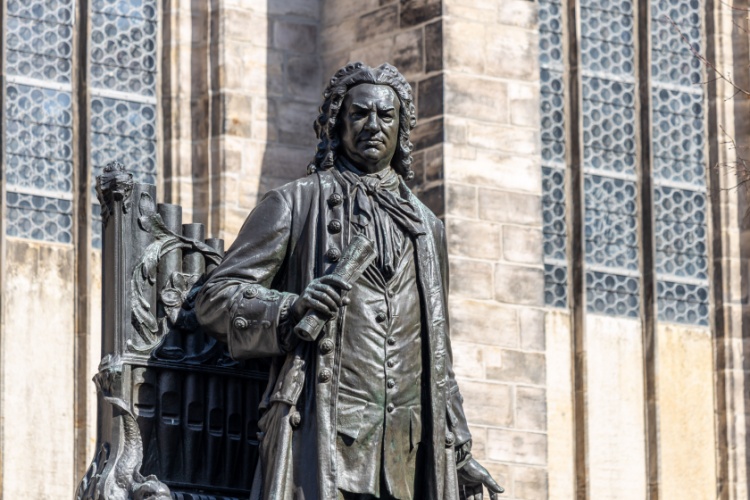
Born on March 21, 1685, in the German city of Eisenach, Johann Sebastian Bach entered the world as a member of a family that had been deeply immersed in music for nearly two centuries. From a very early age, Bach began to learn and master various musical instruments. At the age of 14, he was accepted to St. Michael School, where his phenomenal soprano voice earned him a choral scholarship in Lüneburg. Afterwards, in the year 1703, he began his career in music by joining the service of Duke Johann Ernst in Weimar, where he was granted the title of court musician. A significant turning point in Bach’s career came between the years of 1713 and 1714 when the Weimar Court Orchestra was introduced to a comprehensive repertoire of Italian music. From this period onwards, it is possible to see many reflections of Italian music, such as clear melodies and dramatic openings, in Bach’s works.
Johann Sebastian Bach, who created some of the most profound and fascinating works of classical music, such as St. Matthew Passion, BWV 244, Brandenburg Concertos, BWV 1046-1051, Toccata and Fugue in D Minor, BWV 565, The Art of Fugue, BWV 1080 and Goldberg Variations, BWV 988, shaped the history of music with his compositions that went beyond their time.
Although Bach struggled with significant vision problems throughout much of his life, his genius was not fully recognized until years after his passing in the year 1750 in Leipzig. Recognized as one of the most prolific and innovative composers in the history of Western music, Bach’s works have been interpreted and reimagined by countless artists over the last two centuries, continuing to inspire new generations of listeners, musicians and composers.
The Child Prodigy in Classical Music: Wolfgang Amadeus Mozart
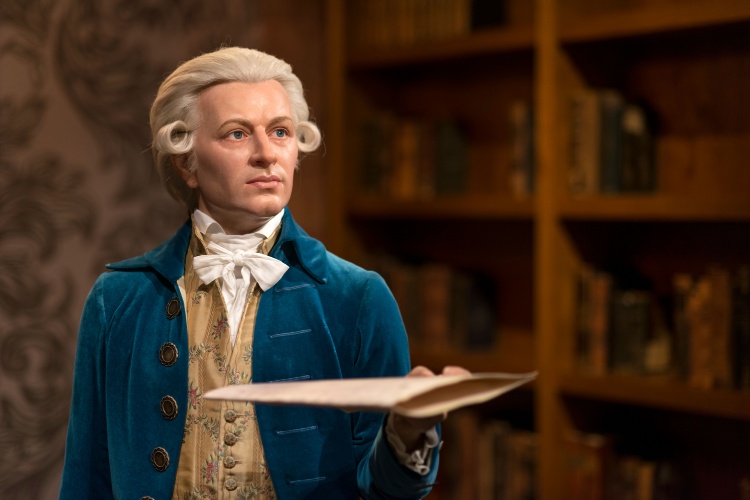
Wolfgang Amadeus Mozart, whose name proved to be one of the most prodigious in the classical music world, remains one of the most influential and important composers in the history of Western music. Born on January 27, in the year of 1756, in Salzburg, Austria, Mozart where he demonstrated extraordinary musical talent from the age of five by playing the piano and soon showcased his prodigious abilities, quickly capturing the attention of those around him. By the age of seven, Mozart had already given his first concert for the Austrian royal family in Vienna, garnering widespread admiration. Between the years of 1762 and 1766, Mozart made artistic tours in various European countries with his father, and he was welcomed with great enthusiasm, especially in Italy, which is known for the land of music.
Mozart, who wrote two famous operas, The Marriage of Figaro and Don Giovanni, passed away in the year 1791 at the age of 35. Despite his short life, today, Mozart’s compositions continue to inspire and captivate audiences around the world.
The Composer Who Overcame the Struggles: Ludwig van Beethoven
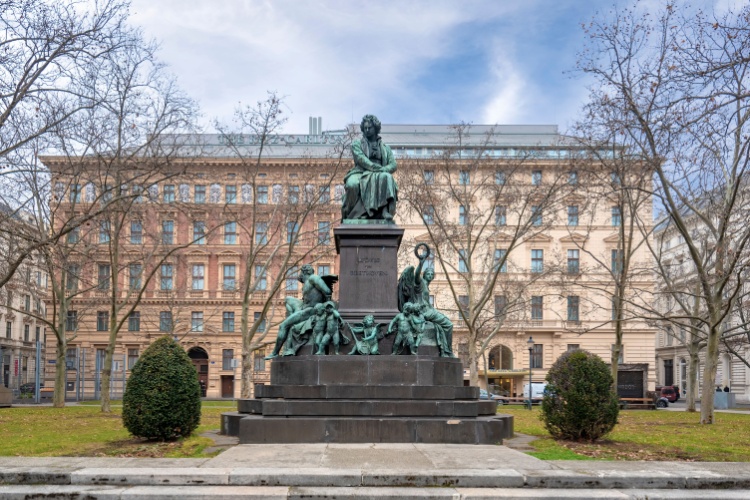
Ludwig van Beethoven, a German-born pianist and composer, stands as one of the leading names that left a mark on the history of Western classical music. Born on December 17, 1770, in Bonn, Germany, the musical talents of Beethoven were recognized at an early age by Christian Neefe, a prominent music teacher in Bonn, who began to give musical education to the young Beethoven. Despite facing numerous challenges, including an authoritarian father and financial difficulties, Beethoven’s passion for music never wavered. While he was getting his musical education, Beethoven strengthened his bond with music and moved to Vienna, opening a new page in his career. However, the master artist’s life and music career were dramatically affected by some major hearing problems that began shortly after he moved to Vienna. Despite having these overwhelming obstacles, Beethoven continued to perform by relying on his inner vision of music. One of the most phenomenal features of Beethoven is that he defines his music as “the language of the soul.”
Among the most groundbreaking works of Ludwig van Beethoven are 9th Symphony and Moonlight Sonata. The 9th Symphony, consisting of four movements, reflects the revolutionary spirit in his music. Moonlight Sonata, one of the best-known works of Ludwig van Beethoven, which bears the influence of the Romantic period, tells of the emotional depth in his compositions. Despite all the difficulties that he had experienced, the master composer continued to create his works and continues to have a deep impact on the music world and to be a source of inspiration today.
The Master of Romantic Expression: Frédéric Chopin
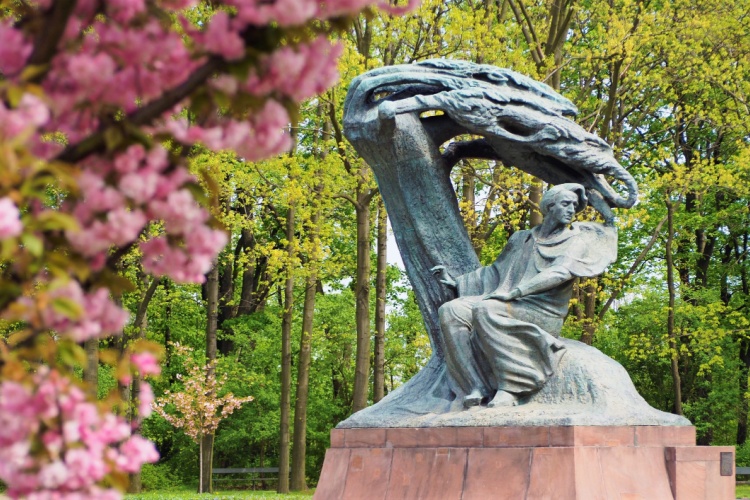
The master composer Frédéric Chopin, whose interest in music was noticed at an early age, was born in Poland in the year 1810. Frédéric Chopin exhibited extraordinary musical talent, which attracted the attention of music teachers, leading to receiving training in this field. He demonstrated his composing potential by experiencing his first stage performance by the time he was seven years old and took it even further with the education that he had received at the Warsaw Conservatory.
The artist, who was known in aristocratic and intellectual circles, continued to make a living both by giving concerts and by giving private lessons. Chopin, whose works are intensely lyrical and romantic, composed many types of works such as sonatas, concertos, ballads, etudes and polonaises.
Frédéric Chopin continues to have a profound impact on the classical music world today with his various important works such as Nocturne Op. 9, No. 2, Ballade No. 1 in G Minor, Op. 23 and Polonaise in A-flat Major, Op. 53.
From Swan Lake to The Nutcracker: Pyotr Ilyich Tchaikovsky
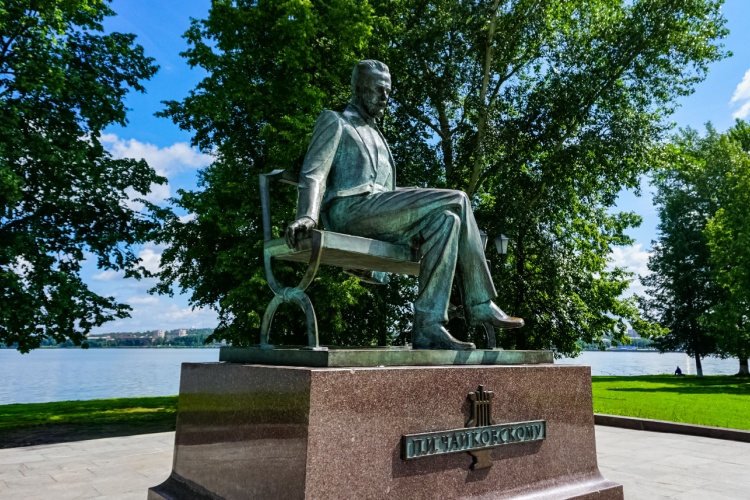
Pyotr Ilyich Tchaikovsky, a Russian composer of the Romantic era, was born on May 7, in the year of 1840, in Russia. Although Tchaikovsky has a passion for music, he became a government official at the age of 19. However, at the age of 21, he studied at the Petersburg Conservatory and after graduating, he began teaching music at the Moscow Conservatory in 1865.
During those times, which is approximately 11 years of working as a teacher, Tchaikovsky, who composed many works, achieved great success with the Swan Lake Ballet staged in 1876. Yevgeni Onegin, the 1812 Overture, The Sleeping Beauty and The Nutcracker Ballets were staged in the year 1889, becoming one of the significant works among the other works of the artist.
The Most Beautiful Address for a Pleasant Piano Recital: Pera Palace Hotel

Since opening its doors to guests, the Pera Palace Hotel has hosted an array of distinguished figures from around the world and stands as one of the most iconic landmarks in İstanbul. Over the course of the year, the hotel has also served as the venue for numerous cultural and artistic events. Today, it continues to welcome its guests with enjoyable piano recitals during the traditional tea time that are held in the Kubbeli Salon, which takes place every day of the week between 15.00 and 18.00.
It is possible to travel back in time with the delightful piano melodies of Aslı Güral at the Kubbeli Salon, which has the feature of being the first tea time venue in İstanbul. For more information or to make a reservation, you can contact the Pera Palace Hotel right away.



